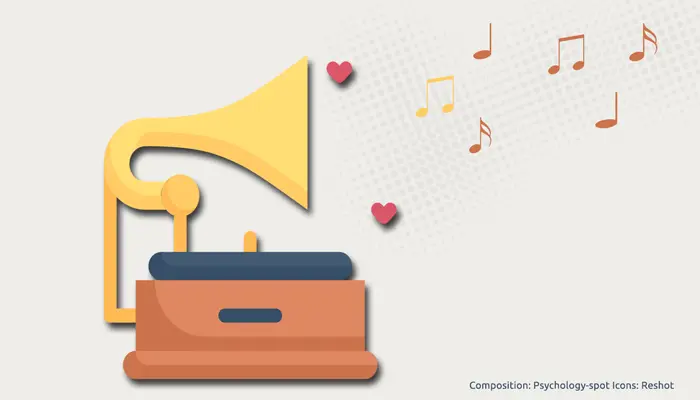
If you like music, it is likely that on some occasions you discovered songs that hooked you, themes that you loved and that you’ve never felt tired of listening to, again and again, even if they had lost the attraction of novelty and were no longer a surprise. Precisely, researchers of the University of Michigan wondered why we can hear to our favorite song hundreds of times without getting bored.
Play it again, Sam
The study involved 204 people, who completed a questionnaire about their musical tastes and their experiences with their favorite songs. Surprisingly, the average repetition of those favorite songs was more than 300 times, even more when people recognized having a very special emotional connection with that song.
About 86% of the participants reported hearing their favorite song daily or several times a week. 43% of those who listened to it on a daily basis repeated the subject at least three times a day. 60% listened to the song several times in a row and about 6% indicated that they wanted to listen to the song before pushing the play button.
The most curious thing was that the frequency was triggered when people said that the song generated mixed emotions, a bittersweet feeling. Although in a general sense, the favorite songs were of all genres, pop or rock used to be the more frequent.
In fact, the characteristics of the song were particularly important. People referred to falling in love with the melody, rhythm and lyrics of the song. However, the degree of happiness or satisfaction caused by a song was directly linked to the rhythm of it.
The music we like activates our brain as a whole
These psychologists explain that we listen to certain songs again and again because they generate a kind of “addiction”. When we like a song or link it to some positive experience, it activates the reward system in our brain by releasing dopamine. Since that song makes us feel good and generates a pleasant feeling of comfort, it is normal that we want to listen to it again and again.
In fact, neuroscientists at McGill University found that when we know a song very well, an intense discharge of dopamine occurs in our brain when we anticipate the high points of the theme.
Another very interesting study, conducted at the Wake Forest School of Medicine, proved that our brain reacts as a whole to our favorite songs and those we like, compared to the music we do not like.
Using functional magnetic resonance (fMRI), they appreciated that our preferred music promotes greater connectivity at brain level, which generates global processing and stimulates processes such as happiness and creativity. In fact, one of the most active areas is the precuneus, an area of the upper parietal lobe that is related to episodic memory, visuospatial processing, reflections on oneself and self-consciousness.
Sources:
Conrad, F. et. Al. (2018) Extreme re-listening: Songs people love . . . and continue to love. Psychology of Music. Wilkins, R. W. et. Al. (2014) Network Science and the Effects of Music Preference on Functional Brain Connectivity: From Beethoven to Eminem. Scientific Reports; 4: 6130.
Salimpoor, V.N. et. Al. (2011) Anatomically distinct dopamine release during anticipating and experience of peak emotion to music. Nature Neuroscience; 14: 257–262.



